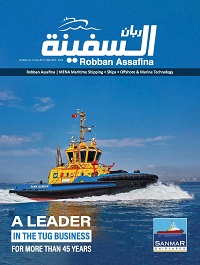Shell and HHI partner on pioneering fuel cell project
Korean shipyards believe fuel cells offer shipping a path to decarbonisation. Hyundai Heavy Industries has followed the lead taken by compatriot Samsung Heavy Industries in investing serious sums in fuel cell research and development, announcing today a consortium agreement to demonstrate fuel cells for ships with Shell, Doosan Fuel Cell, HyAxiom, and DNV.
According to the agreement, Hyundai Heavy Industries will use a 600 KW high-efficiency solid oxide fuel cell (SOFC) for power generation on a 174,000 cu m LNG carrier to be run by Shell from 2025, the latest in a series of pioneering green shipping initiatives Shell has signed up to.
| Read More: Lebanese Wael Sawan appointed Shell's new CEO |
The Shell LNG carrier will use fuel cells as an auxiliary power unit and perform its demonstration for one year on an actual trade route.
In addition to this agreement, Hyundai Heavy Industries is developing its own SOFC technologies to promote fuel cell development projects.
Karrie Trauth, senior vice president of shipping and maritime at Shell, said: “This consortium and the cutting-edge technology we’re pioneering could help deliver less carbon-intensive operations in the near term while unlocking a pathway to net-zero through the blending of conventional and alternative fuels until zero-carbon options are available at scale.”
| Read More: Shell and Chevron invest in Aurora Hydrogen clean H2 tech |
Two years ago Bloom Energy and Samsung Heavy Industries signed a joint development agreement to design and develop fuel cell-powered ships with a senior Samsung official saying at the time his company’s goal was to replace all existing main engines and generator engines with solid oxide fuel cells.
Daewoo Shipbuilding & Marine Engineering, the other yard in Korea’s big three shipbuilding pantheon, has also been conducting significant SOFC research over the past three years.
Source: Splash 247
| Read Here | |
 |
|



































